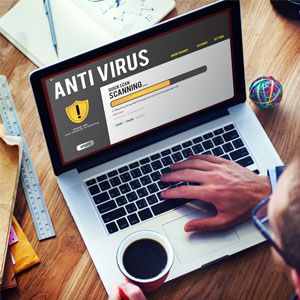|
 Even though surfing the web and conducting business online can seem harmless, that is not always the case. It is important to take precautions to keep yourself safe while online. To help, CB&S Bank has online safety tips to lessen your exposure to Internet safety threats. Even though surfing the web and conducting business online can seem harmless, that is not always the case. It is important to take precautions to keep yourself safe while online. To help, CB&S Bank has online safety tips to lessen your exposure to Internet safety threats.
- Keep Your Personal Information Offline—Try to keep your personal information off the Internet. While sharing things such as your birthday, your first pet's name, your first car, the street you grew up on, etc. may seem harmless enough, cybercriminals tend to use this information to impersonate you or to gain access to your passwords, security questions, and even logins.
- Be Vigilant While Browsing or Shopping—Always be cautious while shopping or browsing on the Internet. Identity thieves and cybercriminals will oftentimes use "clickbait" to lure people in. Clickbait is content that is designed specifically to grab your attention and have the user click the link. One way to ensure that the website you are using is a safe and secure site is by checking the URL address. Secure sites will begin with "https," instead of "http." Secure sites will also have a padlock icon in the URL field to indicate that it is a safe site to use.
- Use a VPN Connection and/or a Firewall, when You Can—VPN stands for Virtual Private Network and is a secure connection between your device and any Internet server. A VPN hides any sensitive information you may be dealing with. A firewall is a software that helps protect your network by blocking outsiders from gaining access to information on your computer.
- Watch What You Download—Be wary of what you choose to download... Cybercriminals are notorious for disguising malware as downloadable items that may be of interest to you. To err on the side of caution, only download things from sites you know and trust.
- Make Your Password as Strong as Possible—Oftentimes, people will use simple passwords or use the same password for every account. Try to make your password as strong as possible by incorporating upper and lowercase letters, special characters and numbers. Refrain from using any personal information (a pet's name, a birth date, your maiden name, etc.) as your password.
- Update Your Antivirus Software—You must keep your device's antivirus software current. Identity thieves have been known to take advantage of people's personal computers by infecting them with viruses and malware that can record passwords, personal/financial information and even certain keystrokes. Keeping the latest security software on your device can greatly decrease the threat of a computer virus.
- Take Advantage of Two-Factor Authentication—Two-factor authentication increases your online account security, as it requires an additional response or code to a message that is sent to your email address, mobile device, or an authentication app. By using two-factor authentication, anyone who may be attempting to log in to your accounts will need to have your password and the code that was sent to you.
- Update Your Computers and Devices—Be sure to keep up to date with the latest updates for your hardware.
- Use Caution When You Receive Emails from People You Do Not Know and Unexpected Emails from People You Do Know—Any unexpected email containing links and attachments should be highly suspect, even from people you know. By clicking on links, you run the risk of downloading malware to your machine or network and divulging confidential information to the fraudsters. If you know the sender, first be sure to verify and call the sender at a telephone number that is valid, not one given in the suspicious email.
|